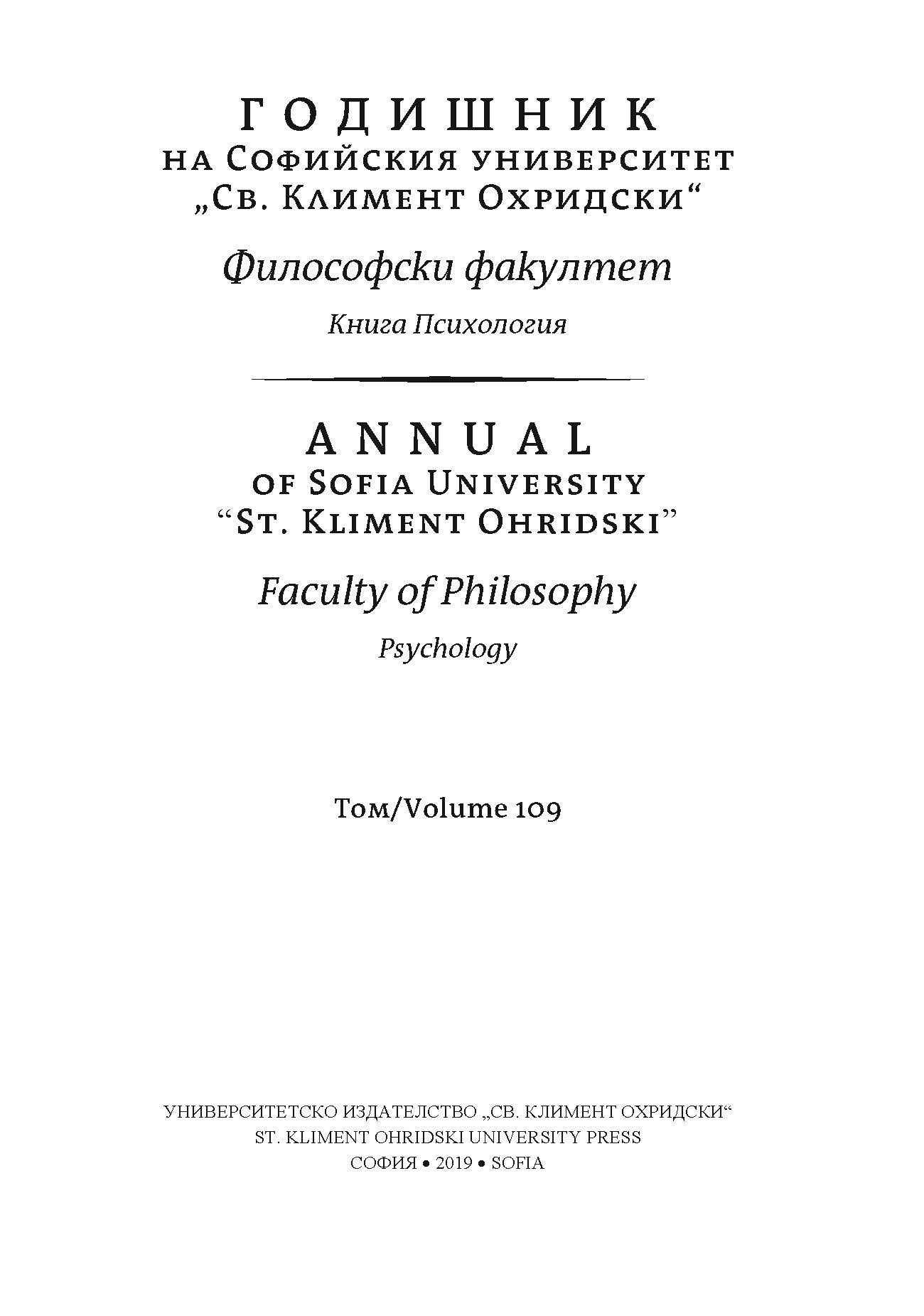Личностен въпросник за DSM-5: кратка форма (PID-5-ВF). Факторна структура, надеждност и валидност в българска юношеска извадка
Personality inventory for DSM-5: brief form (PID-5-ВF). Factor structure, reliability, and validity in Bulgarian adolescent sample
Author(s): Svetlina Koleva, Plamen KalchevSubject(s): Social Sciences, Psychology, Individual Psychology, Developmental Psychology, Experimental Pschology
Published by: Софийски университет »Св. Климент Охридски«
Keywords: Personality inventory for DSM-5: brief form (PID-5-ВF); factor structure; reliability; validity; Bulgarian adolescent sample
Summary/Abstract: Personality Inventory for DSM-5 Brief Form (PID-5-BF, Krueger et al., 2013) is constructed upon full 220-item version of PID-5 for assessment of pathological personality traits, according to dimensional model of personality disorders in DSM-5. The inventory is intended to be used in screening procedures and consist of 25 items for five domains: Negative Affect, Detachment, Antagonism, Psychotism, and Disinhibition. Bulgarian adaptation for adolescence encompasses a sample of 994 adolescents (910 listwise), 379 boys, 516 girls, and 15 provided no gender information, age ranged from 13 to 18. Reliability of PID-5-BF is acceptable, regarding small number of items in each domain: between ɑ=0,634 (Detachment) and ɑ=0,760 (Disinhibition). Structure of PID-5-BF is assessed with exploratory and confirmatory factor analyses. Results reproduce the five original factors, but state for an exchange of one item of Detachment with a reserve option. Validity is tested with Assessment of Sadistic Personality (ASP, Plouffe et al., 2017; Kalchev & Koleva, 2017). Results from regression analyses state two significant predictors of sadistic tendencies: a leading effect of Antagonism, and weaker of Disinhibition. Derived models show better explanatory power in ASP–Subjugation (46,3% variance explained), than ASP–Pleasure-seeking (39,4%). Gender differences are identified: girls show higher rates on Negative Affect, boys score higher on Antagonism and Disinhibition. Results obtained confirm psychometric properties of PID-5-BF and show opportunities for appliance in future research and practice purposes.
Journal: Годишник на Софийския университет „Св. Климент Охридски“. Философски факултет. Психология
- Issue Year: 109/2019
- Issue No: 1
- Page Range: 115-152
- Page Count: 38
- Language: Bulgarian

